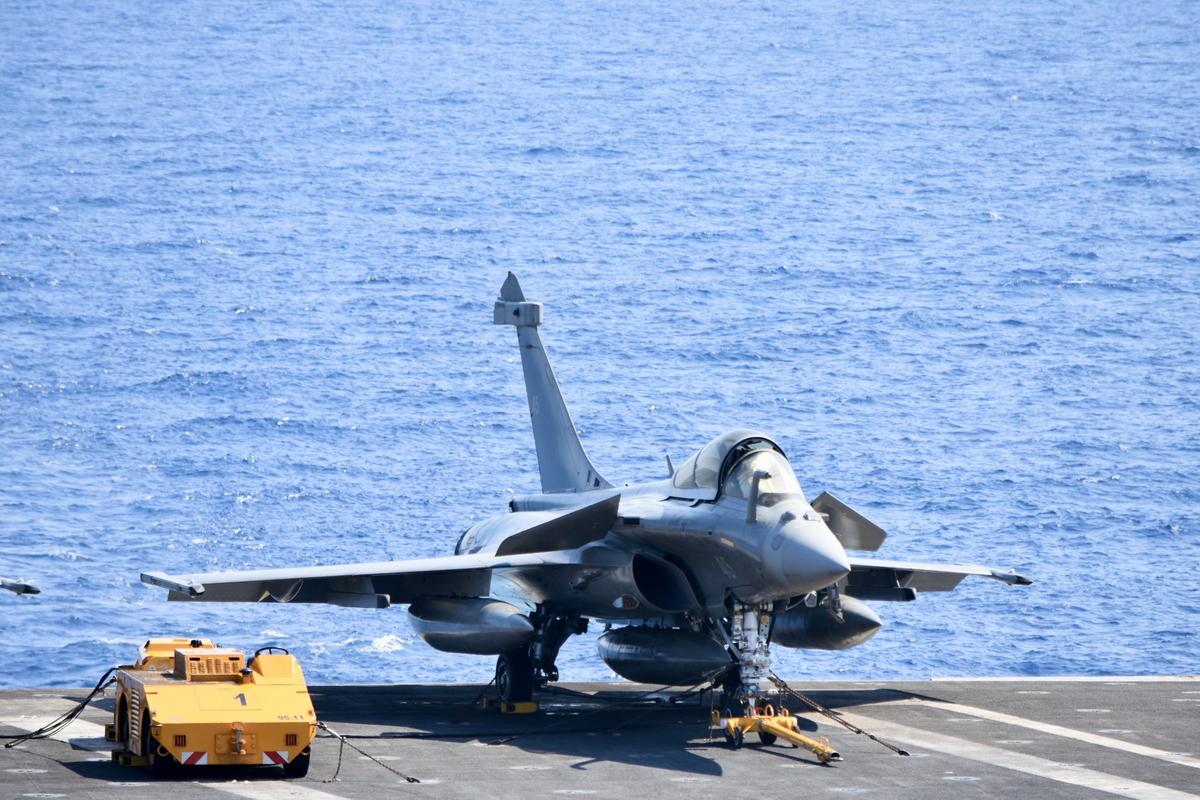SOURCE: AFI


In a landmark decision to strengthen the Indian Navy’s maritime strike capabilities, the Cabinet Committee on Security (CCS), chaired by Prime Minister Narendra Modi, has approved a ?63,000 crore government-to-government deal with France to procure 26 Rafale Marine (Rafale-M) fighter jets from Dassault Aviation. The contract, cleared on April 8, 2025, marks India’s largest-ever fighter jet acquisition and is set to enhance the Navy’s operational prowess in the Indian Ocean Region (IOR), particularly amid growing Chinese naval activity. However, the deal also raises questions about India’s long-term self-reliance goals and the strategic implications of continued reliance on foreign defense imports.
The contract includes 22 single-seater Rafale-M jets and four twin-seater trainer variants, designed specifically for carrier-based operations. These jets will be deployed on India’s indigenous aircraft carrier, INS Vikrant, and will complement the Navy’s existing fleet of Russian-origin MiG-29K jets, which currently operate from INS Vikramaditya. The Rafale-M, a 4.5-generation omnirole fighter, is engineered for Short Take-Off But Arrested Recovery (STOBAR) operations, featuring a reinforced undercarriage, strengthened landing gear, and a corrosion-resistant airframe to withstand the harsh maritime environment. The jets can carry 9.5 tonnes of weapons, including air-to-air, air-to-ground, and anti-ship munitions, making them a formidable asset for both offensive and defensive missions.
Should the deal cross the finish line in April, the Indian Navy can expect the first Rafale M jets to touch down by late 2029, with the full complement of 26 aircraft—22 single-seaters and 4 twin-seater trainers—delivered by 2031. This timeline aligns with a 48-month delivery schedule post-contract, a standard for such high-stakes defense procurements. The jets will operate from both Vikramaditya and Vikrant, enhancing India’s carrier-based air wing with a proven 4.5-generation platform.
The deal, expected to be formalized in the coming weeks, also includes a comprehensive package covering fleet maintenance, logistical support, personnel training, and indigenous manufacturing components under offset obligations. Deliveries are projected to begin in 2029, with the full fleet inducted by 2031—a timeline of 37 to 65 months post-signing. The agreement further ensures five years of performance-based logistics support and spares for the 36 Rafale jets already in service with the Indian Air Force (IAF), inducted in 2016 under a ?59,000 crore contract. This commonality between the IAF’s Rafale-C and the Navy’s Rafale-M variants is expected to streamline training, maintenance, and logistics, creating operational synergies.
The Rafale M’s arrival will elevate India’s naval aviation to new heights. Equipped with advanced weaponry—think Meteor air-to-air missiles, Exocet anti-ship missiles, and SCALP precision-guided munitions—these jets offer versatility across air defense, maritime strike, and reconnaissance roles. Their AESA radar and Spectra electronic warfare suite give them an edge over regional rivals, including China’s J-15 fighters, which lack the Rafale’s agility and technological finesse.
For India, this isn’t just about hardware—it’s about deterrence. The People’s Liberation Army Navy (PLAN) has been expanding its carrier fleet, with dual-carrier exercises in the South China Sea signaling its ambitions. The Rafale M, paired with Vikrant’s indigenous might and Vikramaditya’s proven capability, positions India to counterbalance this growing presence, safeguarding vital sea lanes in the IOR from the Strait of Malacca to the Arabian Sea.
The deal also deepens the Indo-French strategic partnership. Building on the 2016 acquisition of 36 Rafale jets for the Indian Air Force, this naval contract reinforces a trusted collaboration. Commonality between the Air Force and Navy variants promises logistical efficiencies—shared spares, maintenance protocols, and training pipelines could trim costs over the jets’ decades-long service life.
NOTE: AFI is a proud outsourced content creator partner of IDRW.ORG. All content created by AFI is the sole property of AFI and is protected by copyright. AFI takes copyright infringement seriously and will pursue all legal options available to protect its content.